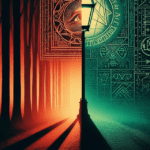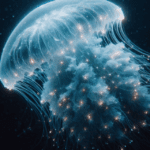
A Celestial Dance: The Allure of the Northern Lights
The Northern Lights, also known as the aurora borealis, have captivated humanity for centuries. These mesmerizing displays of swirling colors dancing across the night sky are a natural phenomenon caused by the collision of charged particles from the sun with Earth’s atmosphere. While typically restricted to higher latitudes closer to the Arctic Circle, a rare solar storm this weekend might bring this celestial spectacle to an unexpected location – Massachusetts.
This article delves into the science behind the Northern Lights, explores the historical significance of these mesmerizing displays, and provides helpful tips for Massachusetts residents hoping to witness this rare event.


Unveiling the Science: A Collision of Energy
The Northern Lights are a result of a fascinating interplay between the sun and Earth’s magnetic field. The sun constantly releases a stream of charged particles called solar wind. When these particles encounter Earth’s magnetic field, they get channeled towards the poles, where they collide with molecules in the atmosphere. This collision excites the molecules, causing them to emit light – the breathtaking auroras we witness.
The color of the Northern Lights depends on the type of gas molecule that’s excited:
- Green: The most common color, caused by excited oxygen atoms.
- Red: Less frequent, caused by excited oxygen atoms at higher altitudes.
- Blue: Rare, caused by excited nitrogen molecules.
- Purple: A combination of red and blue light.


A Historical Enchantment: The Northern Lights in Folklore and Mythology
The Northern Lights have inspired awe and wonder throughout history. Different cultures have woven their own stories and myths around this celestial phenomenon.
- The Norse people: Believed the Northern Lights were a bridge between the world of the living and the realm of the dead.
- The Inuit people: Saw the Northern Lights as spirits dancing in the sky.
- The Native Americans: Associated the Northern Lights with good omens and hunting success.
These stories add another layer of intrigue to the already captivating nature of the Northern Lights.
Massachusetts on Aurora Watch: A Rare Opportunity?
A powerful solar storm is currently brewing on the sun, with the potential to send a surge of charged particles towards Earth. This could trigger auroral displays at lower latitudes, including parts of Massachusetts. While not guaranteed, there’s a chance that skywatchers in Massachusetts might be able to witness the Northern Lights this weekend.
Here are some key factors that determine the likelihood of seeing the Northern Lights in Massachusetts:
- Solar Storm Strength: A stronger solar storm increases the chances of a visible aurora.
- Cloud Cover: Clear skies are essential for viewing the Northern Lights.
- Light Pollution: Urban areas with significant light pollution will have a lower chance of seeing the aurora.
Tips for Catching a Glimpse of the Aurora Borealis in Massachusetts
If the skies over Massachusetts cooperate this weekend, here’s how to maximize your chances of witnessing the Northern Lights:
- Head Away from City Lights: Escape the light pollution of urban areas. Seek out dark locations with a clear view of the northern horizon.
- Dress Warmly: Nighttime temperatures can drop significantly, especially outside the city.
- Pack Your Patience: The aurora is a natural phenomenon, and sightings aren’t guaranteed. Be prepared to wait and enjoy the stargazing experience.
- Bring a Camera (Optional): If equipped with a camera and a tripod, you can capture stunning long exposure photographs of the Northern Lights. Research camera settings and composition tips for aurora photography beforehand.
Frequently Asked Questions (FAQs)
1. What’s the best time to see the Northern Lights in Massachusetts (if visible)?
The Northern Lights are typically most visible between 10 pm and 3 am, when the skies are darkest. However, the exact timing can depend on the specific location and the intensity of the aurora.
2. Can you see the Northern Lights in Massachusetts during the summer?
Solar storms are more frequent during the peak solar cycle, which occurs roughly every 11 years. While possible, sightings of the Northern Lights in Massachusetts are more likely during these periods of heightened solar activity, regardless of the season. However, the longer daylight hours in summer make it more challenging to see the aurora, even if it’s present.
3. Are there any reliable resources to track the Northern Lights forecast for Massachusetts?
Several online resources can help you track the Northern Lights forecast for Massachusetts. Here are a few reputable options:
- National Oceanic and Atmospheric Administration (NOAA) Space Weather Prediction Center: https://www.swpc.noaa.gov/ offers real-time updates on solar activity and forecasts for geomagnetic storms.
- The Auroral Oval Forecast: https://www.gi.alaska.edu/monitors/aurora-forecast provides a visual forecast for the location of the auroral oval, which is the region in the sky where the Northern Lights are most likely to be seen.
- Smartphone Apps: Several smartphone apps focus on aurora borealis forecasts, providing location-specific information and alerts.
4. What are some of the best places in Massachusetts to see the Northern Lights (if visible)?
While any location with a clear northern horizon and minimal light pollution offers a chance of seeing the Northern Lights, some areas in Massachusetts might be more favorable:
- Western Massachusetts: Locations with less light pollution like the Berkshires or Mount Greylock offer a higher chance of a successful viewing experience.
- Cape Cod National Seashore: This remote area on the Cape offers dark skies and unobstructed views of the northern horizon.
- Martha’s Vineyard and Nantucket: These islands boast minimal light pollution and open northern views, making them potential viewing spots (weather permitting).
5. What safety precautions should I take while observing the Northern Lights?
Observing the Northern Lights is a safe activity. However, if you’re venturing out to a remote location, it’s always wise to:
- Inform someone of your plans and estimated return time.
- Dress appropriately for the weather conditions.
- Be aware of your surroundings and potential wildlife encounters.
Conclusion: A Celestial Encounter Awaits?
The potential sighting of the Northern Lights in Massachusetts this weekend presents a unique opportunity for skywatchers. Embrace the spirit of adventure, head out to a dark location with clear skies, and keep your eyes peeled. Even if you don’t witness the elusive aurora, the experience of stargazing under a clear night sky can be incredibly rewarding. So, bundle up, grab a thermos of your favorite warm beverage, and prepare for a potential encounter with this breathtaking celestial phenomenon!
More Interesting Perks:
- From Flying Skate to Orca: A Deep Dive into the Vancouver Canucks’ History, Jerseys, and Fan Culture
- Don’t Miss the Buzzer Beater: Ultimate Guide to NBA Streams in 2024
- Pixel Perfect for Your Pocket? Unveiling the Google Pixel 8a and Its Budget Phone Battle
- A Hundred Heroes Rise: Eiyuden Chronicle: Hundred Heroes Review
- The Cozy Cure: Exploring the Benefits and Considerations of Weighted Sleep Sacks
Subscribe To Get New Post Updates VIA Email


Anwar Hussain
As an Architectural and Interior 3D Visualization Expert, I spend my days crafting stunning visuals that showcase the potential of design. But my passion for storytelling extends beyond the screen. At usabuzzblog.com, I leverage my design expertise to provide insightful and engaging content on Technology, Health & Fitness, Travel, News, Architecture, interior design, and the broader creative landscape. Join me as I explore the latest trends, share design tips, and unveil the stories behind the spaces we inhabit.














